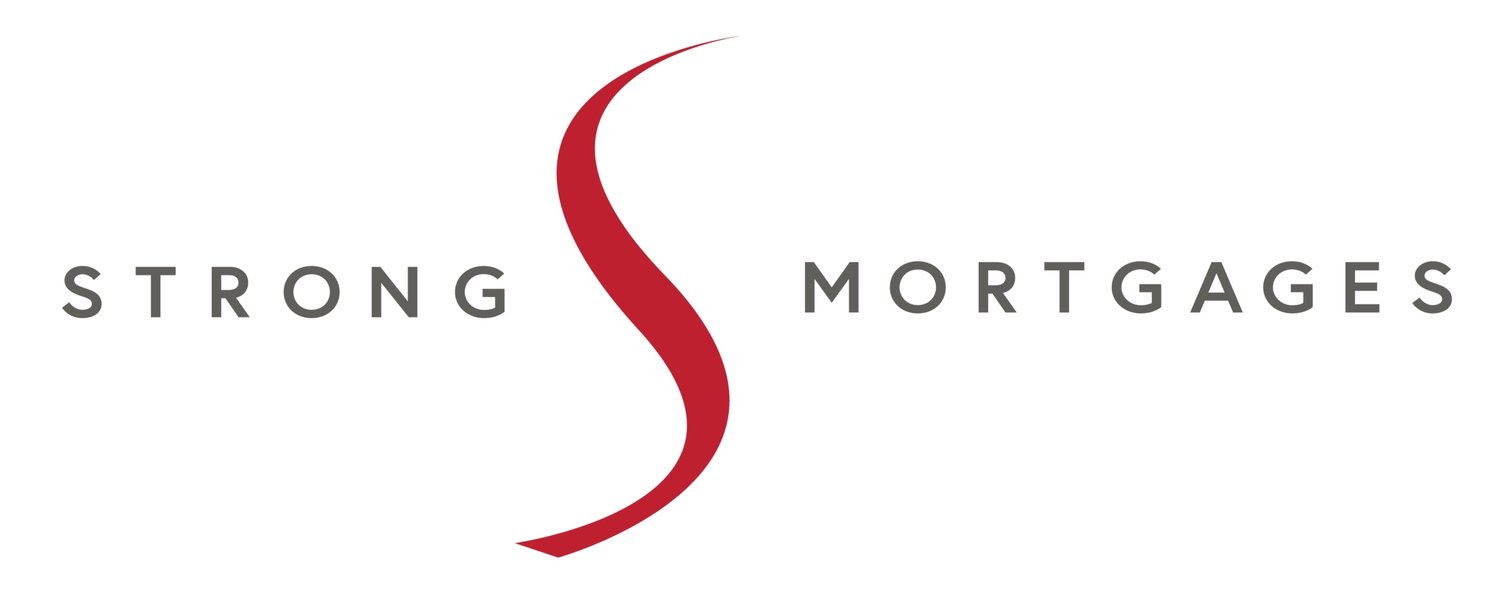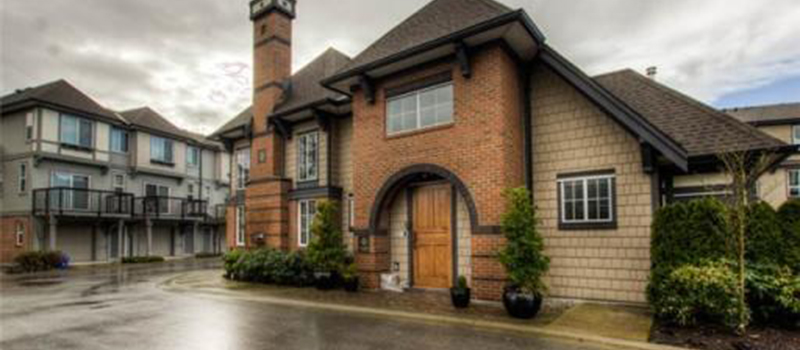 We’re in the presence of a real estate standoff, in more ways than one.
We’re in the presence of a real estate standoff, in more ways than one.
Buyers are feeling like it’s better to wait until the sale slowdown and an anticipated increase in interest rates lessen competition and lower prices. Sellers, meanwhile, are accustomed to the price increases we have experienced for more than a decade and expect to get more than their asking price, but only if they wait out the slump. Both parties are sitting on the sidelines, putting little pressure on prices and inventory.
Meanwhile, a standoff between government protection and the basics of economic supply and demand is also hovering over the real estate industry. Finance Minister Jim Flaherty has put pressure on banks to not indulge in mortgage rate wars in hopes to curb public interest as Canadian consumer debt soars. Mr. Flaherty may have overstepped his boundaries when he pressed Manulife Bank into reversing their new promotion lowering their five-year fixed mortgage from 3.09% to 2.89%. Prior to that, he publicly disapproved the Bank of Montreal for dropping their posted rate to 2.99%, which was disregarded by the lender. The introjections emphasize the government’s determination to limit consumer interest in the housing market without enforcing additional mortgage rules.
Since the last mortgage rules were implemented in July 2012, a decline in housing prices and sales has been experienced across Canada, with small pockets of markets increasing. On the brighter side, overall the market is stable and making a slow correction, employment is still trending upwards and banks have managed to collectively post a record high 7.33 Billion in profit.
More highlights from the March headlines:
Overall Market
- Seasonally adjusted rate of housing starts rose to 180,719 units in February, up from 158,998 in January. (CMHC)
- There were 10,965 starts last month, down from 12,247 in February 2012. (CMHC)
- Canadian home prices are overvalued by about 20% (Fitch Ratings)
- Carney is warning Canadians to pay down debt on the grounds that rates are sure to rise in future.
- The Bank left Canada’s core lending rate unchanged at 1% for the 29th straight month, with no change in sight.
- The country’s dominant banks brought in a collective record profit $7.33-billion, up more than 11% from last year.
- Credit-market debt such as mortgages rose to 165.0% of disposable income, compared with 164.7% in the prior three-month period. (Statistics Canada)
- Price index for new homes rose 0.1% in January, following a 0.2% increase in December. (Statistics Canada)
- The growth of household credit slowed to about 3% near the end of 2012, the lowest rate since 1999, and down from about 5.5% through much of the remainder of last year. (Central Bank)
- Mr. Flaherty is expecting that banks engage in prudent lending – not the type of ‘race to the bottom’ practices that led to a mortgage crisis in the United States, however, if the banks don’t pass on better rates, consumers will go to one of the many monoline lenders that fund mortgage brokers.
- A slowing housing market could deal the most damage to CIBC, National Bank and TD (Barclays Capital)
- Google says it saw a 50% jump in the number of people using the term mortgage after one of the major banks announced it was cutting its five-year posted rate 10 basis point to 2.99%.
- After years of growth, economists say the real estate boom is over and predict Canadian housing prices to flatline over the next decade.
- Canadian residential home prices grew by an average of 5.4% per year between 1980 and 2012, climbing about 7% per year in the last decade. The market has cooled over the last six months and will continue its slide over the next few years as tighter mortgage rules, modest economic growth and higher interest rates push rates downward. The economists project a 3.5% annual rate of return on real estate beyond 2015, a low rate that has not been seen since 1980.
- Home sales fell 15.8% year-over-year in February and 2.1-per-cent lower than January. (CREA).
- The national average price fell 1% to $368,895 in February, but removing Vancouver’s sluggish market from the mix, prices actually rose 1.3% year-over-year, Using its home price index measure prices actually rose 2.7 per cent in February from the year before. (CREA)
- The number of newly listed homes fell 1.2% last month from January to their lowest level since November 2010. (CREA)
- The CREA cut its forecast for sales this year after a weak second half of 2012 that saw sales slow more than it expected some markets. 2013 sales are expected to total 441,500 units, down 2.9% from 454,573 in 2012. The revised outlook compared with earlier expectations for a 2% drop in sales. The national average home price is forecast to slip by 0.2% to $362,600.
- The number of homes sold in February fell 16% compared with the same time last year. Roughly 80% of local markets in Canada saw housing sales declines last month. (Canadian Real Estate Association)
- Largely flat at the national level, gains in excess of inflation are still expected in the Prairies and Newfoundland. British Columbia, Ontario and New Brunswick are expected to post declines in average prices this year. Alberta and Manitoba are the only provinces where sales are expected to rise in 2013. (CREA)
- Vancouver remains the clear weak spot, with sales down a seasonally adjusted 9.8% in February and 29.2% in the past year (BMO)
- The mortgage insurance sector. The new rules will “gradually limit” the issuance of low ratio mortgages to only those mortgages that are in the CMHC securitization program. Ottawa will prohibit the use of any taxpayer-backed insured mortgage, both high and low ratio, as collateral in securitization vehicles that are not sponsored by CMHC
- A slowdown in Canada’s housing market will continue through 2013 and years of stagnation may follow, but no crash is likely because demographic trends will support demand in the medium term. Home sales have already dropped more than 10% from spring 2012, with prices leveling off but not yet falling except in particularly hard-hit markets. Expect a decline in prices of around 5% but that the drop will likely play out over the next couple of years rather than happen quickly. (Scotia Bank)
- Demographics, including steady immigration and the preference of baby boomers to remain in their homes, will support housing demand. Immigration, which adds some 250,000-300,000 people to Canada’s population every year, will increasingly be the dominant source of new household formation. Immigration is most likely to support house prices in big cities. (Scotia Bank)
- Canada experienced its sixth consecutive month of house price declines in February, with prices falling 0.2 per cent from January. (Teranet-National Bank)
- A decline in prices is expected in the third quarter of 2013, but for the most part interest rates are offering some protection to the size of the decline. There is absolutely no sociological change in people’s desires to own homes, young people want to be part of the 70% of Canadians who own homes.” (Royal LePage Residential Services)
- Real estate author Don Campbell said investors he deals with are trying to lock in as long as they can because rates are so low. (REIN)
- The number of Canadians expecting to buy a home within two years has dropped dramatically even though overall confidence in real estate remains strong. 15% of those surveyed said they were likely to buy in the next two years, a drop from 27% of respondents in last year’s survey. The 12-percentage point drop is the biggest recorded by the poll, now in its 20th year. 84% felt real estate remained as a sound investment, while 52% said now is a good time to get into the market. (RBC annual survey)
- Canadians aged 44 to 64 showed an above-average tendency to accumulate debt, suggesting that holding debt later in life may be a new trend and one with some staying power.
Vancouver
- Metro Vancouver saw a sharp drop in housing starts in February, both in total numbers and the overall pace of construction. The decline was largely due to lower condominium and townhouse starts, which came in at 833 in February compared with 1,675 starts in the same month a year ago. A big increase in single-family-home starts, at 279 versus 195 a year ago, helped offset the other declines, leaving overall starts at 1,112 for the month, down 40 per cent from 1,870 starts in the same month a year ago. (CMHC)
- Housing resales in Metro Vancouver have slowed during the past year. In February, 1,797 sales, which was down 30 per cent from the same month a year ago. (REBGV)
- Across B.C 1,596 starts in February, down from 2,235 in the same month a year ago. (CMHC)
- Vancouver homes are overpriced by about 26%. Greater Vancouver’s housing values could drop by as much as 15% over the “next several years. (Fitch Ratings)
- MLS® home sales fell to the lowest levels since early-2009, declining 3.4% from January to a seasonally adjusted 4,875 units. On an unadjusted basis, home sales were nearly 24% lower than the same-month last year, but declines were magnified by more sale days in leap year 2012.
- The average provincial MLS® price scaled back 2.3% from January to a seasonally adjusted $502,100, which is within the range observed since May. While more than 10% below 2011 highs, average prices are highly volatile, and changes can reflect shifts in the geographic distribution of provincial sales as well as the impact of price outliers.
- February’s MLS® report suggests little momentum heading into the vaunted spring market. There are few indications that sales activity will accelerate over the next few months. Triggers of materially lower mortgage rates or rapid improvements in the economy are unlikely, and mortgage insurance policy will continue to temper entry-level demand.
- Markets are generally mired in excess inventory, which should precede price declines. However, further declines are expected to be modest. Sellers are generally in a position to be patient, given the persistence of low interest rates and steady employment, rather than sharply cut prices – which should limit supply growth.
- Sales are expected turn modestly higher over the next couple of months, but annual sales are forecast to remain essentially unchanged from 2012 at 68,000 units.
- Sales recorded through the Multiple Listing Service dropped 24%in February to 4,501 transactions compared with 5,895 a year ago. The provincial average price was $529,922 in February, down 8.1% from February 2012.
- For the first two months of 2013, B.C.’s sales have totaled 9,842, a 20% decline from the first two months of 2012.
- While new stricter mortgage qualification rules introduced last year crimped the buying power of first-time buyers, mortgage rates remain near historic lows, B.C. is still experiencing population growth and the economy is still seeing job creation, all of which should support a higher level of housing sales. (BCREA)
- Central 1 Credit Union is predicting a slow, weak recovery for real estate in British Columbia, saying it expects a flat market for both unit sales and prices for the next few years.
Calgary
- Total housing starts in the Calgary region fell by 33.4% in February compared with last year (CMHC).
- Single-detached starts of 486 were off by 0.8% while multi-family starts of 410 dropped by 52% compared with February 2012.
- Year-to-date, total starts in the region of 1,615 are down 24.2% from the same period in 2012. That’s a result of the multi-family sector being off by 32% (888 units). However, the single-detached market is up 12.2% to 927 starts this year.
- Year-to-date until March 25, there have been 4,677 MLS sales in the city, up 3.45% from the same period a year ago. The median price has risen by 5.88% to $396,000 and the average sale price has increased by 9.12% to $453,710. (Calgary Real Estate Board)
- Calgary led the country in February with the best annual price growth in the MLS Home Price Index, but the Calgary market followed a national trend of declining MLS sales in February, however, at a much lower pace. Nationally, sales were off nearly 16% from a year ago but they were down only 2% in Calgary. (CREA)
- CREA said price growth in Calgary was 8.0% year-over-year “marking some of the strongest price growth that city has seen since the spring of 2010.
- The average sale price in Calgary in February jumped by 8.2% to $438,755 but across the country it fell by 1.0% to $368,895. (CREA)
- Alberta was the only province in the country to experience year-over-year sales growth, as there were 4,512 MLS transactions during the month, up 0.8% from last year. The average sale price rose by 5.3% to $378,685.
- CREA released a forecast for the next two years and it predicted Alberta would have the best annual price growth in Canada in 2013 and 2014.
- Average sale prices are expected to rise 3.6% this year to $376,400 and by 3.9 % next year to $390,900 in the province.
- CREA predicted for Alberta an increase of 0.4% in sales this year to 60,600 units and another hike of 3.5% in 2014 to 62,700 transactions in the province.
- Between March 1-21, there were nine condo sales in Calgary in the price tag of $1 million-plus. The previous monthly sales record for the luxury condo market was seven in both October 2007 and June 2011. Last year was a record year in the luxury condo market with 36 sales for the entire year. (First Place Realty in Calgary)
- Proximity to amenities – an area’s accessibility – has become one of the key determinants of a residential property’s value. A neighbourhood’s ‘walkability’ to those amenities is becoming increasingly more important to potential homebuyers. (REIN)
- Between 2000 and 2012, the 10 communities that saw the largest spikes in average home prices were in the city’s core and surrounding neighbourhoods. Of these 10 neighbourhoods, the average home price increased between 205-260% – a result that the Calgary Real Estate Board says is directly linked to proximity to more amenities and an increase in alternate transportation options. However, overall Calgary was recently ranked the least walkable in a top 10 list of Canada’s biggest cities. Vancouver placed first with a score of 78 out of 100 while Calgary scored 48.
- 89% of people in the Alberta province, higher than the 84% national average, felt home ownership is a good investment. Buying intentions in Alberta dropped to 22% from 31% a year ago. (RBC)
Toronto
- The number of homes sold last month in the Toronto area was down about 15% from the same time last year…. The association says the average transaction price last month in the Greater Toronto Area was $510,580, up from $510,249 in February 2012.
- Toronto luxury homes lost their lustre in February, which contributed to a 15% decline in house sales across the GTA year over year. (Toronto Real Estate Board)
- Sales of homes over $2 million plummeted by 32.5% and dollar volumes slipped by 35.5% last month compared with February 2012.
- The average selling price of a GTA home was $510,580 last month, up just 2% from a year earlier.
- Resale condo transactions also took a serious hit, with sales down more than 20% across the GTA. Prices slide by 5% in the City of Toronto, but were up more than 4% in the 905 regions.
- Detached homes saw the biggest sales declines, next to resale condos, with transactions down 16% across the GTA, and almost 17% in the City of Toronto.
- Prices flatlined in the 416 regions for those coveted homes, with sale prices averaging $823,329. Detached home in the 905 areas sold for an average 3.4% more in February, compared to the same month last year, with prices averaging $582,777.

 1030 Eden Crescent, Tsawwassen
MLS:
1030 Eden Crescent, Tsawwassen
MLS: 

 Wishing Tree
53, 9566 Tomicki Avenue, Richmond
MLS:
Wishing Tree
53, 9566 Tomicki Avenue, Richmond
MLS: 